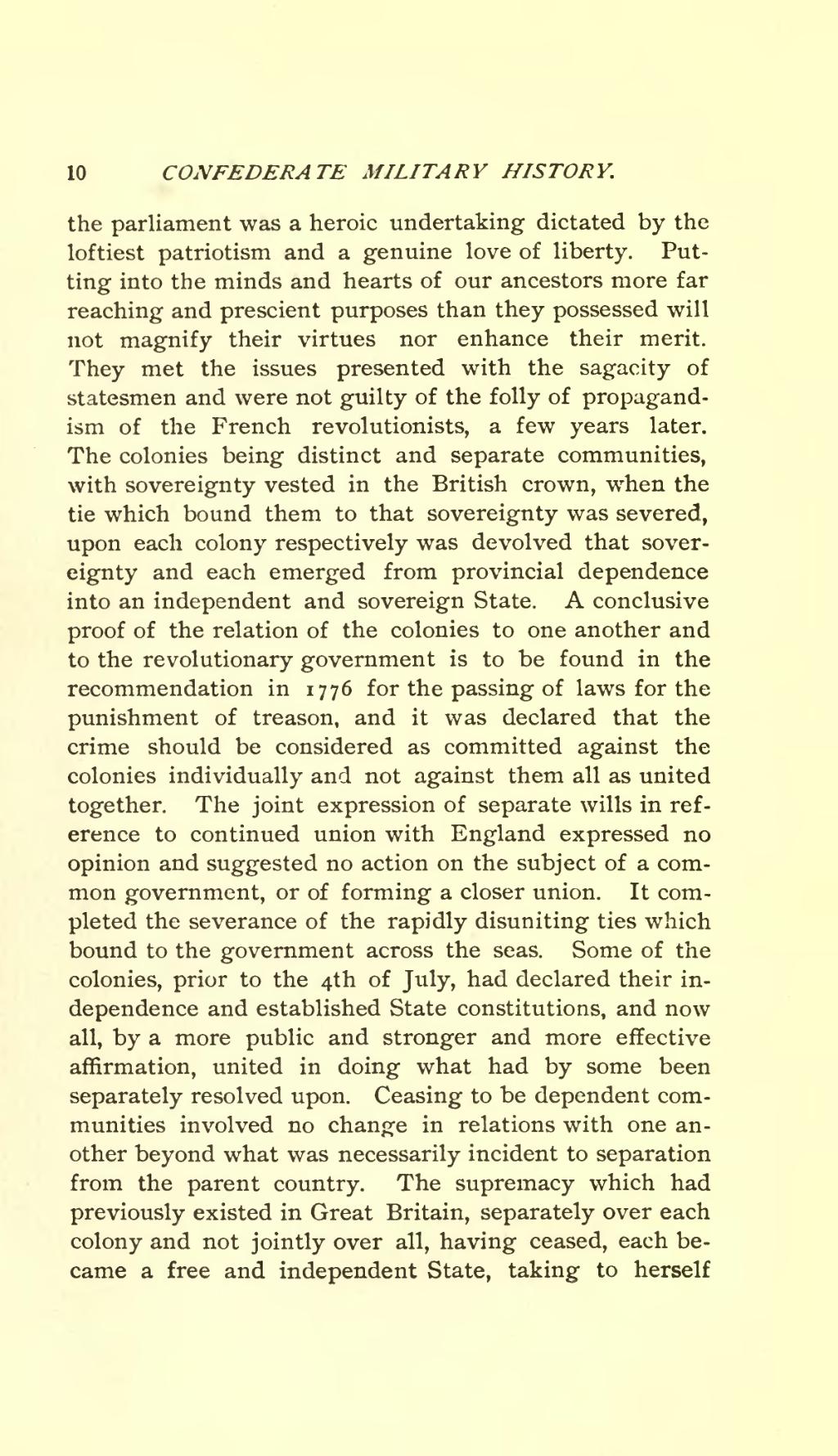the parliament was a heroic undertaking dictated by the loftiest patriotism and a genuine love of liberty. Putting into the minds and hearts of our ancestors more far reaching and prescient purposes than they possessed will not magnify their virtues nor enhance their merit. They met the issues presented with the sagacity of statesmen and were not guilty of the folly of propagandism of the French revolutionists, a few years later. The colonies being distinct and separate communities, with sovereignty vested in the British crown, when the tie which bound them to that sovereignty was severed, upon each colony respectively was devolved that sovereignty and each emerged from provincial dependence into an independent and sovereign State. A conclusive proof of the relation of the colonies to one another and to the revolutionary government is to be found in the recommendation in 1776 for the passing of laws for the punishment of treason, and it was declared that the crime should be considered as committed against the colonies individually and not against them all as united together. The joint expression of separate wills in reference to continued union with England expressed no opinion and suggested no action on the subject of a common government, or of forming a closer union. It completed the severance of the rapidly disuniting ties which bound to the government across the seas. Some of the colonies, prior to the 4th of July, had declared their independence and established State constitutions, and now all, by a more public and stronger and more effective affirmation, united in doing what had by some been separately resolved upon. Ceasing to be dependent communities involved no change in relations with one an other beyond what was necessarily incident to separation from the parent country. The supremacy which had previously existed in Great Britain, separately over each colony and not jointly over all, having ceased, each be came a free and independent State, taking to herself
Page:Confederate Military History - 1899 - Volume 1.djvu/38
Jump to navigation
Jump to search
10
CONFEDERATE MILITARY HISTORY.
